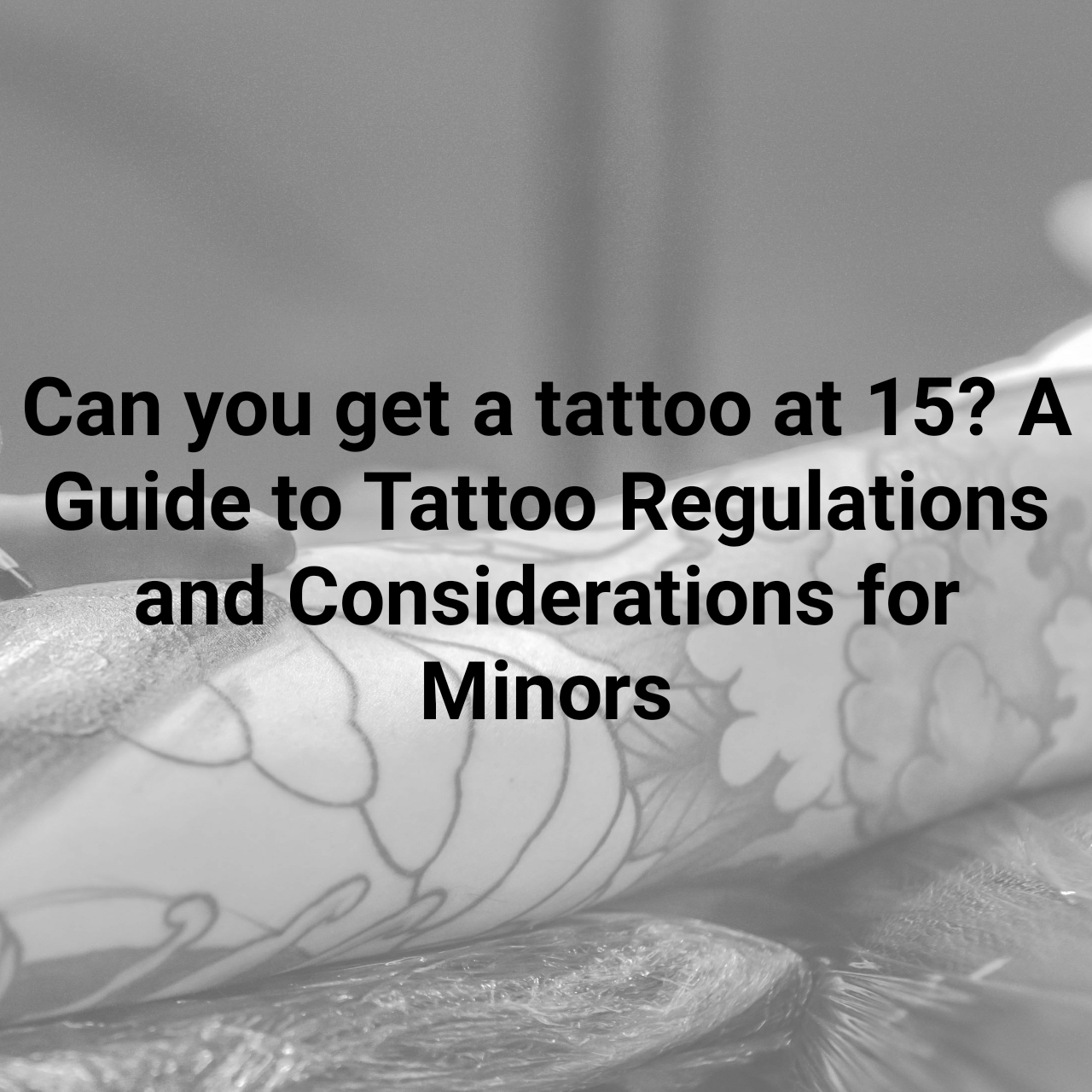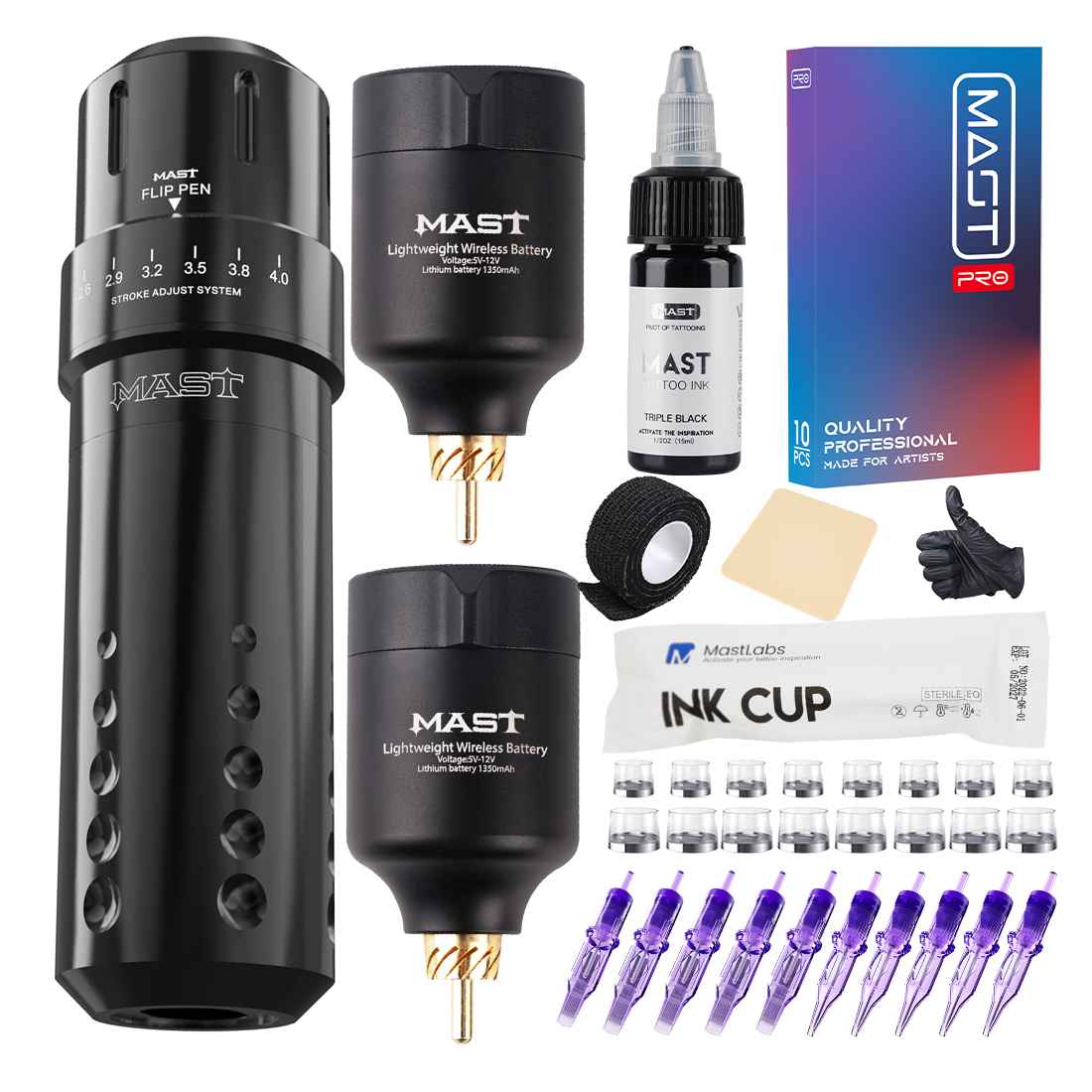Tattoos have become a popular form of self-expression, particularly among teenagers.
However, it’s crucial to understand the age restrictions and legal considerations surrounding this artistic practice.
Why is it so important to know the rules?
Well, here’s a surprising statistic: according to recent studies by statistica, nearly 12% of Americans regret getting their tattoos.
By being aware of the age restrictions in place, you can make an informed decision that you won’t later regret.
Whether you’re a teenager considering getting inked or a concerned parent, navigating the legal landscape is essential.
In this guide, we will explore the minimum age requirements for getting a tattoo, the potential health risks, and the legal implications involved.
We’ll also shed light on the importance of seeking professional guidance and understanding the laws specific to your region.
So, let’s delve into the fascinating world of tattoo age restrictions and equip ourselves with the knowledge needed to make an informed decision.
Can you get a tattoo at 15? Let’s find out together!
Can you get a tattoo at 15?
The world of tattooing is governed by legal age restrictions, which vary across countries and often require parental consent.
Let’s explore the fascinating landscape of tattoo age regulations, international variances, and the crucial role of parental involvement.
Legal Age Restrictions for Tattoos
Tattoo age restrictions serve to protect minors from potential risks and ensure responsible decision-making.
While the legal age for getting a tattoo varies worldwide, let’s consider an example: In the United States, the majority of states set the minimum age at 18.
However, some states allow tattoos for individuals aged 16 or 17 with parental consent.
Understanding the specific regulations in your jurisdiction is vital to avoid any legal complications.
Age Requirements for Tattooing in Different Countries
Interestingly, age requirements for tattoos can differ significantly from one country to another.
For instance, in the United Kingdom, the legal age for getting a tattoo is 18, regardless of parental consent.
Conversely, countries like Spain and Germany permit tattoos at 16 with parental approval.
Researching the specific regulations in your country will help you navigate the age restrictions accordingly.
Also Read: How old do I have to be to get a tattoo?
Importance of Parental Consent
Parental consent plays a crucial role in the tattooing process for minors. In many jurisdictions, individuals below the legal age require permission from their parents or legal guardians.
This requirement ensures that young people make informed decisions with the guidance of their trusted adults.
For instance, in Australia, parental consent is necessary for individuals aged 16 or 17 seeking tattoos.
Engaging in open and honest conversations with parents can help teenagers and their families understand the risks, implications, and long-term commitment associated with tattoos.
As you can see, the question “Can you get a tattoo at 15?” is multifaceted, involving legal age restrictions, international variances, and the importance of parental consent.
Tattooing regulations for minors
When it comes to tattooing, regulations for minors play a crucial role in ensuring the safety and well-being of young individuals.
Let’s take a look;
Laws and regulations governing tattoos for minors
Tattooing laws are designed to protect minors from potential health risks and ensure responsible decision-making.
These laws vary from one jurisdiction to another and are typically established by local governments or health authorities.
For instance, in the United States, the Food and Drug Administration (FDA) provides guidelines for tattooing establishments, and individual states further specify age restrictions and requirements.
Also Read: Can you be 14 to get a tattoo?
Different age limits and restrictions in various states/countries
It’s intriguing how age limits for tattoos can differ significantly across states and countries.
For instance, some states in the U.S. allow tattooing as young as 16 with parental consent, while others set the minimum age at 18.
Similarly, countries such as Germany and Spain require individuals to be 18 years old, regardless of parental consent.
Exploring these variations provides valuable insights into cultural norms and legal frameworks.
Parental involvement and consent forms
Parental involvement is a crucial aspect of tattooing regulations for minors. In many jurisdictions, parental consent is required for individuals under a certain age to get a tattoo.
Consent forms are typically used to document this agreement, ensuring that parents or legal guardians understand the risks and implications involved.
Examples of such consent forms may include detailed information about the tattooing process, potential health hazards, and an acknowledgment of their responsibility in the decision.
Potential risks and considerations
We can’t really give an answer to the question of whether it is okay to get a tattoo at 15 without looking at the potential risks involved.
This will help you make involved decisions as regards getting a tattoo at 15.
Here we go;
1. Health risks associated with underage tattooing
Underage tattooing poses specific health risks due to the body’s ongoing physical development.
Adolescents have more sensitive and delicate skin, making them more susceptible to infections, allergic reactions, and scarring.
For example, improper sterilization of tattooing equipment can lead to the transmission of blood borne diseases such as hepatitis or HIV.
2. Impact of tattoos on physical and mental development
The decision to get a tattoo at 15 should consider the potential impact on physical and mental development.
Tattoos can affect how a person is perceived and may have consequences in certain environments such as educational institutions or future professional settings.
Additionally, teenagers may go through significant changes in personal preferences and beliefs as they mature, leading to potential regret or dissatisfaction with their choice of tattoo.
Also Read: Is it okay to have a tattoo at 16?
3. Long-term consequences and regrets
Studies have shown that a significant percentage of individuals regret their tattoos later in life.
Consider the case of Sarah, who got a tattoo at 15 that represented her favorite band.
However, as she grew older, her musical tastes changed, and she found herself stuck with a permanent reminder of a fleeting interest.
Such experiences highlight the importance of carefully considering the long-term consequences and potential regrets before getting a tattoo at a young age.
Also Read: Pros and cons of getting a tattoo at 16
Alternatives to permanent tattoos for teenagers
While permanent tattoos may be off-limits for teenagers due to age restrictions or personal preferences, there are plenty of exciting alternatives available for those seeking temporary body art.
1. Temporary Tattoo Options
Temporary tattoos have come a long way from the basic designs of the past.
Nowadays, you can find a plethora of temporary tattoo options that mimic the look and feel of real tattoos.
From intricate designs to vibrant colors, these temporary tattoos are easily applied and can last for several days.
Plus, they offer the flexibility to change designs frequently, allowing teenagers to experiment with different styles without long-term commitments.
- Henna Tattoos
Henna tattoos have been practiced for centuries and are a popular choice for temporary body art.
Made from the natural dye of the henna plant, these tattoos adorn the skin with beautiful brown or reddish-brown designs.
Henna tattoos are safe, temporary, and fade gradually over time.
They are particularly popular for special occasions like festivals, weddings, or cultural celebrations.
- Body Art Alternatives That Don’t Involve Needles
For teenagers who prefer to avoid needles altogether, there are numerous body art alternatives to explore.
One such option is body painting, where skilled artists use non-toxic paints to create stunning designs on the skin.
This art form allows for intricate details and can be customized to reflect personal interests or artistic preferences.
Another alternative is airbrush tattoos, created by spraying non-permanent ink onto the skin.
Airbrush tattoos offer a wide range of design possibilities, from realistic images to fantasy-inspired creations.
They are particularly popular at parties, events, and themed gatherings.
Also Read: Is 17 a good age to get a tattoo?
FAQs
Can a 15-year-old get a tattoo with parental consent?
- Yes, in some jurisdictions, a 15-year-old may be able to get a tattoo with parental consent.
- Some tattoo studios may have their own policies regarding minimum age requirements with parental consent.
- It is important to research and understand the specific laws and regulations in your local area.
What is the minimum age to get a tattoo?
- The minimum age to get a tattoo varies by country and state.
- In many places, the minimum age is typically 18 years old without parental consent.
- Some locations may allow individuals as young as 16 or 17 to get a tattoo with parental consent.
Are there any exceptions to the age restrictions for tattoos?
- In certain cases, a court order may allow an exception to the age restrictions for tattoos.
- Some regions may have specific provisions for medical or cosmetic tattooing under the age of consent.
- These exceptions are typically rare and require proper legal procedures to be followed.
Is it safe for a teenager to get a tattoo?
- The safety of getting a tattoo as a teenager depends on various factors, including the professional tattoo artist, proper hygiene practices, and aftercare.
- Teenagers should carefully consider the potential risks, such as allergic reactions, infections, or complications during the healing process.
- Consulting with a reputable tattoo artist and following their guidance can help ensure a safer experience.
What are the risks of underage tattooing?
- Underage tattooing can pose health risks due to the body’s ongoing development during the teenage years.
- Improper sterilization techniques or unhygienic environments may increase the risk of infections or diseases, such as hepatitis or HIV.
- Teenagers may also face higher chances of regretting their tattoo choices as they mature and their tastes change.
What are the legal consequences for tattoo artists who tattoo minors?
- Tattooing a minor without appropriate parental consent can lead to legal consequences for the tattoo artist.
- Legal penalties may include fines, license suspension or revocation, and even criminal charges, depending on the jurisdiction.
- It is crucial for tattoo artists to adhere to the age restrictions and obtain proper consent to avoid legal ramifications.
Can a 15-year-old get a tattoo in Turkey?
In Turkey, the legal age to get a tattoo without parental consent is 18. However, minors who are 15 years old or older can obtain a tattoo with written consent from their parent or legal guardian.
It is important to note that tattoo regulations may vary, so it is advisable to consult with local authorities or reputable tattoo studios for the most accurate and up-to-date information.
Can a 15-year-old get a tattoo in Canada?
In Canada, the legal age to get a tattoo varies by province or territory. Generally, most provinces require individuals to be at least 18 years old to get a tattoo without parental consent.
Some provinces, such as British Columbia and Ontario, allow minors who are 16 years old or older to get a tattoo with parental consent.
It is essential to check the specific regulations in the province where you reside.
Can a 15-year-old get a tattoo in South Africa?
In South Africa, the legal age for getting a tattoo without parental consent is 18. Minors who are 16 or 17 years old can obtain a tattoo with written consent from their parent or legal guardian.
It is crucial to ensure compliance with the regulations of the specific province or municipality where the tattoo is sought, as there may be additional requirements or restrictions.
Can a 15-year-old get a tattoo in Ireland?
In Ireland, the legal age to get a tattoo without parental consent is 18. Minors who are 16 or 17 years old may be able to get a tattoo with the consent of their parent or legal guardian.
However, tattoo studios may have their own policies regarding age limits and parental consent, so it is advisable to contact individual studios for specific information.
Also Read: Will my tattoo stretch if I get it at 18?
Conclusion
In conclusion, when it comes to the question, “Can you get a tattoo at 15?”, the answer is nuanced and depends on various factors, including local laws and parental consent.
It’s essential to be well-informed and make thoughtful decisions regarding tattoos for minors.
Understanding the minimum age requirements, potential risks, and legal implications associated with underage tattooing is crucial.
Take the time to explore alternative options such as temporary tattoos, henna designs, or needle-free body art.
These can provide a creative outlet while allowing for flexibility and avoiding long-term commitments.
I strongly encourage 15 year olds to have open conversations with their parents or guardians, seeking their guidance and support in making informed choices.
Additionally, consulting with experienced tattoo artists or professionals in the industry can provide valuable insights and help navigate the legal and safety aspects.
Remember, the decision to get a tattoo is personal and should be approached with careful consideration.
By staying informed and seeking trusted guidance, you can make choices that align with your values and ensure a positive and meaningful tattoo experience.






